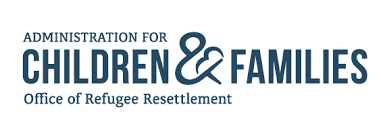A new online training from the National SOGIE Center provides information on supporting young people who identify as LGBTQ+ (lesbian, gay, bisexual, transgender, questioning, or other gender or sexual identity) during family finding and engagement processes. The free, 45-minute training provides information … Read More
Safety Permanency & Well-being

How Child Welfare Agencies Can Support Reunification
The American Bar Association’s Center on Children and the Law hosted a webinar, “What Child Welfare Agencies Can Do to Support Reunification,” on resource and foster caregivers’ roles in the reunification process. The session focused on how child welfare agencies can facilitate … Read More

ORR Influx Care Facilities for Unaccompanied Children Fact Sheet
The U.S. Department of Health and Human Services (HHS) is working diligently with its interagency partners to ensure that unaccompanied migrant children are placed with vetted family members or other sponsors in the U.S. as quickly and safely as possible. … Read More

Co-designing a Kin-first Culture Approach in Child Welfare – Public Service Design Conference 2023
Bloom Works and the Washington state Department of Children, Youth and Families share how they used service design and co-design to help children in the foster care system stay connected to their extended families, and overcome systemic barriers to kin … Read More

On the Threshold of Change Forces that Could Transform Future Conditions for Youth in Extended Foster Care (EFC)
Introduction Prior to 2010, youth in foster care “aged out” of the system at the age of 18, which left them to navigate adulthood on their own. Many had been deeply traumatized by their experiences before foster care, the loss … Read More

Psychotropic Polypharmacy Trends Rise Among Child, Adolescent Medicaid Beneficiaries
The results of a study examining trends in psychotropic polypharmacy among youths enrolled in Medicaid indicated that there has been a rise in the concomitant use of multiple psychotropic medications in this patient population. According to the study’s investigators, psychotropic … Read More

Moving Beyond Legal Permanency
Child welfare professionals have traditionally focused on identifying and establishing legal permanency on federally established timelines for young people determined to be unable to return to the care of their parents. However, focusing mostly on legal permanency may result in … Read More

Leveraging Technology to Empower Families: Supporting Foster Parents’ Essential Role in Child Welfare
Within the world of child welfare, foster parents (including those providing kinship and relative foster care) are often the unsung heroes in the lives of many children and young adults. Sometimes, with little advance notice or under challenging circumstances, these … Read More

Analysis From a State-by-State Survey of Kinship Care Policies
A recent survey conducted by Child Trends for the Annie E. Casey Foundation sheds light on the evolving landscape of kinship care policies across states, the District of Columbia, and Puerto Rico. To be released in a five-part series of … Read More

Promoting Anti-racist Child Welfare Practice
Study authors interviewed 16 regional- and state-level public child welfare agency administrators representing 13 states on the inequities they see in the child welfare system, the major challenges they’ve experienced advancing antiracist practice, and strategies they believe will be successful … Read More
